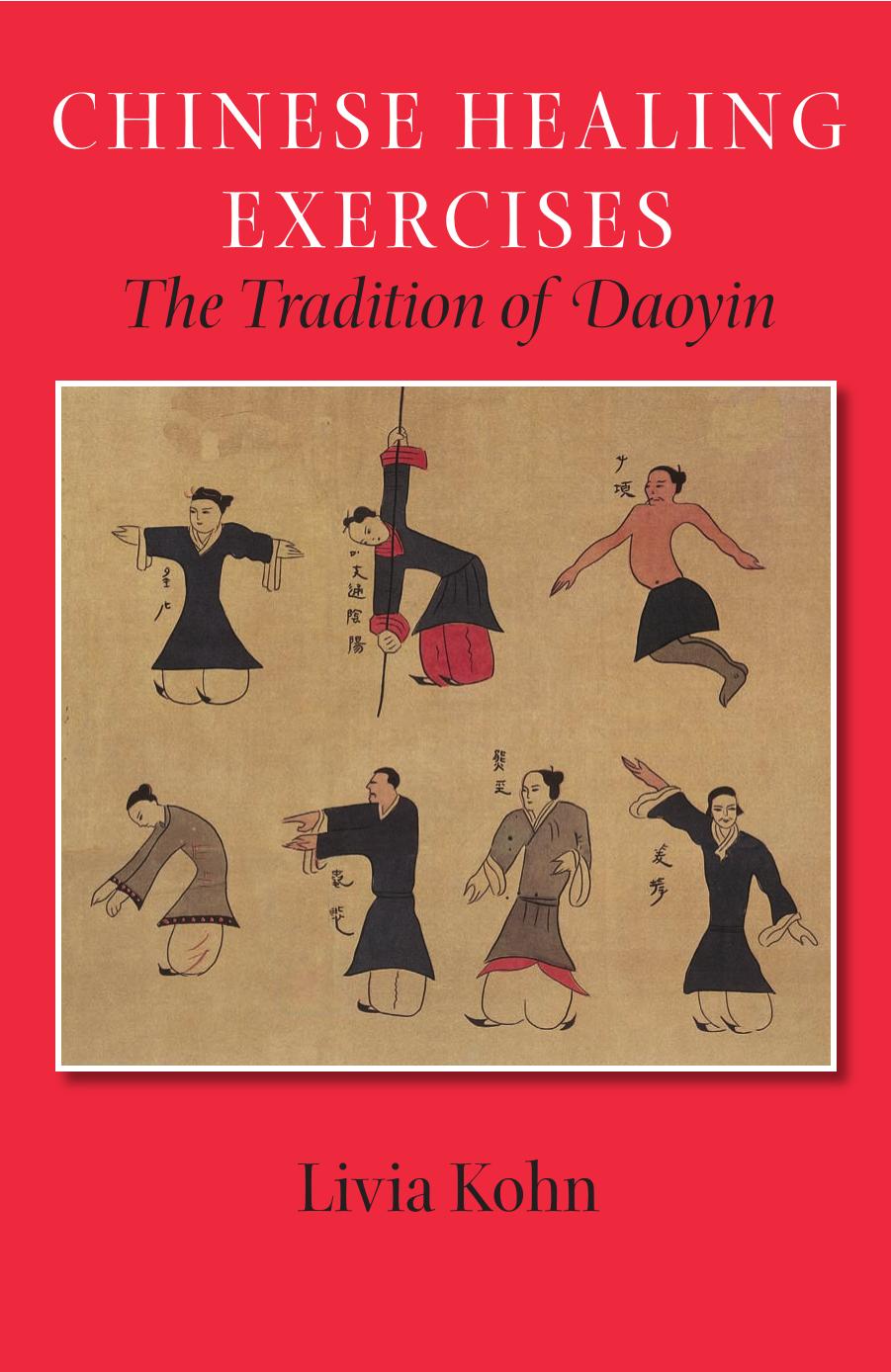Chinese Healing Exercises: The Tradition of Daoyin by Livia Kohn

Author:Livia Kohn [Kohn, Livia]
Language: eng
Format: epub, pdf
Publisher: Sacred Faith Press
Published: 2015-03-09T18:30:00+00:00
Fig. 14: The original text of On Preserving Life. Source: Baoshengming. Further details on how best to align oneself with the rhythm of the Dao in physical practice are spelled out verses on seasonal breathing practice attributed to Sun Simiao according to the Xiuzhen shishu. The text says,
In spring, breathe xu for clear eyes and so wood can aid your liver.
In summer, reach for he, so that heart and fire can be at peace.
In fall, breathe si to stabilize and gather metal, keeping the lungs moist. For the kidneys, next, breathe chui and see your inner water calm.
The Triple Heater needs your xi to expel all heat and troubles.
In all four seasons take long breaths, so spleen can process food.
And, of course, avoid exhaling noisily, not letting even your ears hear it. This practice is most excellent and will help preserve your divine elixir. (19.7a)5
Sun further supplements this with instructions in the Sheyang lun that specify for each month how to live and eat correctly. Thus, for example, in the first 5. This reflects the standard system of the Six Breaths as it is still practiced under the name Six Healing Sounds. It is probably a later ascription to Sun Simiao, since in his Qianjin fang he links he with the liver, si with the kidneys, xu with the lungs, and xi with the spleen (ch. 26). At the same time, the system also appears in the Yangxing yanming lu, another text closely associated with Sun. Here the breaths are not linked with specific organs, but serve to remove heat, fatigue, wind, or anxiety. The method was, moreover, not limited to a Daoist or medical environment, but also appears in a Buddhist text, the Tiantai xiao zhiguan天台小止觀 (Lesser Cessation and Observation [Methods] of the Tiantai School), and in a fragmented Dunhuang manuscript (P. 3043). See Sakade 2005, 28–29.
month one should be aware that the kidneys (associated with winter) may be prone to ailing and that the function of the lungs (the organ dominant in the fall) is still reduced. To help with these conditions, limit the intake of salty and sour foods and increase pungent flavors in the diet but still avoid fresh scallions, which reduce body fluids and blood, as well as fresh ginseng, which creates fatigue. Also, do not eat the flesh of hibernating animals, for doing so will lessen your life energy, or the meat of predators, such as foxes, for doing so will agitate your spirit. Generally taking care to balance the diet will support the kidneys and tonify the lungs, calm and balance the spleen and stomach.
Although it is cold outside, being still midwinter, one should not resist or resent it nor should one keep oneself too warm. One should rise and go to sleep early to avoid lingering in the darkness of night. Very specifically, and reminiscent of the farmer’s almanacs still in use today, the text notes that one should remove white hair on the fourth day, practice meditations and fast for an increase in good fortune on the seventh, and avoid long journeys on the eighth(1ab).
Download
Chinese Healing Exercises: The Tradition of Daoyin by Livia Kohn.pdf
This site does not store any files on its server. We only index and link to content provided by other sites. Please contact the content providers to delete copyright contents if any and email us, we'll remove relevant links or contents immediately.
Periodization Training for Sports by Tudor Bompa(8271)
Bodyweight Strength Training by Jay Cardiello(7917)
Born to Run: by Christopher McDougall(7125)
Inner Engineering: A Yogi's Guide to Joy by Sadhguru(6793)
Asking the Right Questions: A Guide to Critical Thinking by M. Neil Browne & Stuart M. Keeley(5775)
The Fat Loss Plan by Joe Wicks(4920)
Bodyweight Strength Training Anatomy by Bret Contreras(4683)
Yoga Anatomy by Kaminoff Leslie(4363)
Dynamic Alignment Through Imagery by Eric Franklin(4216)
Science and Development of Muscle Hypertrophy by Brad Schoenfeld(4136)
Exercise Technique Manual for Resistance Training by National Strength & Conditioning Association(4071)
ACSM's Complete Guide to Fitness & Health by ACSM(4060)
The Four-Pack Revolution by Chael Sonnen & Ryan Parsons(3978)
Bodyweight Strength Training: 12 Weeks to Build Muscle and Burn Fat by Jay Cardiello(3969)
The Ultimate Bodybuilding Cookbook by Kendall Lou Schmidt(3945)
Yoga Anatomy by Leslie Kaminoff & Amy Matthews(3907)
American Kingpin by Nick Bilton(3886)
Nutrition for Sport, Exercise, and Health by Spano Marie & Kruskall Laura & Thomas D. Travis(3784)
Yoga Therapy by Mark Stephens(3745)
